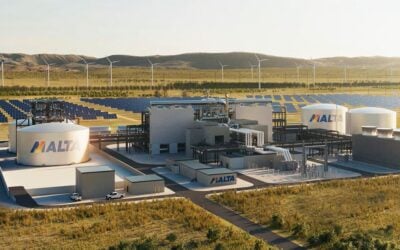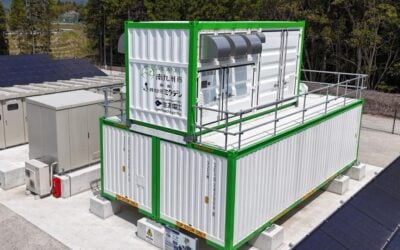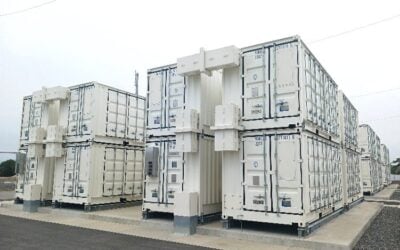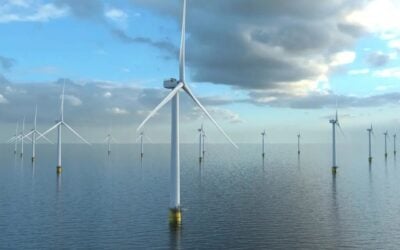
CMBlu Energy, the designer and maker of a proprietary organic flow battery, has won its first deal in the US since the company’s expansion into the market.
Utility holding company WEC Energy Group said yesterday that it will deploy the European startup’s technology in a megawatt-scale pilot project, aimed at demonstrating its long-duration energy storage (LDES) capabilities.
Enjoy 12 months of exclusive analysis
- Regular insight and analysis of the industry’s biggest developments
- In-depth interviews with the industry’s leading figures
- Annual digital subscription to the PV Tech Power journal
- Discounts on Solar Media’s portfolio of events, in-person and virtual
The system will be installed at the site of Valley Power Plant, a 280MW natural gas-fired cogeneration plant in WEC’s portfolio, in Milwaukee, Wisconsin.
The pilot is being conducted in partnership between WEC Energy Group, CMBlu and the national Electric Power Research Institute (EPRI), the influential non-profit technology R&D and demonstration group.
While most flow batteries use vanadium as the main material in their electrolyte, and a smaller number use other electrolytes like zinc-bromine (e.g., Redflow), or iron and saltwater (ESS Inc), CMBlu’s apparently does not.
Like Honeywell and Lockheed Martin, two other players launching proprietary flow batteries into the North American market, CMBlu is keeping the composition of its electrolyte seemingly under wraps, disclosing only that it is organic and made using abundant and recyclable materials.
The exact sizing of the project is to be determined but WEC said it would be a 1MWh to 2MWh system, and its performance will be tested under various use cases, including applications requiring discharge of between 5-10 hours.
Testing is expected to begin in Q4 this year, with EPRI due to share its complete analysis of the project next year.
US manufacturing to follow, company says
CMBlu, headquartered in Frankfurt, Germany, recently expanded into the US, citing favourable market conditions including rising demand for renewables and storage, and the country’s Inflation Reduction Act (IRA) which incentivises domestic production as well as deployment of clean energy technologies.
In January, Energy-Storage.news reported on the organic flow battery company’s US ambitions, including establishing a manufacturing presence, and a short-term plan of making the battery systems available for field testing with a select number of energy customers in 2023.
“This demonstration supports our roadmap of tailored products and manufacturing of Organic SolidFlow batteries in the United States,” Ben Kaun, president of the company’s CMBlu Inc US subsidiary said yesterday.
Industry watchers and long-time readers of this site might recognise the name – Ben Kaun was previously with EPRI for more than 10 years, including as a lead on energy storage and distributed generation R&D and demonstration projects.
In 2018, Kaun and then-colleague Andres Cortes at EPRI wrote an article on the complex trade-off required when operating lithium-ion battery energy storage system (BESS) assets, between maximising use of the batteries and not wearing the cells out through heavily cycling leading to degradation and capacity fade.
While commercialising any new technology is difficult – sometimes referred to as the ‘Valley of Death’ for its high failure rate – Kaun and his new colleagues may at least have freed themselves from that particular challenge, with flow batteries designed to handle frequent heavily cycling over many years.
Numerous other international flow battery providers are taking on the US market, with the likes of Austria’s CellCube, Anglo-American company Invinity (both vanadium), the aforementioned Redflow, which is an Australian company, and H2 (also vanadium) from South Korea among them.
WEC Energy serves more than 4.6 million customers across four US states through various utilities it holds. It also owns power plant company We Power and a renewable energy development platform, WEC Infrastructure.
Energy-Storage.news’ publisher Solar Media will host the 5th Energy Storage Summit USA, 28-29 March 2023 in Austin, Texas. Featuring a packed programme of panels, presentations and fireside chats from industry leaders focusing on accelerating the market for energy storage across the country. For more information, go to the website.






